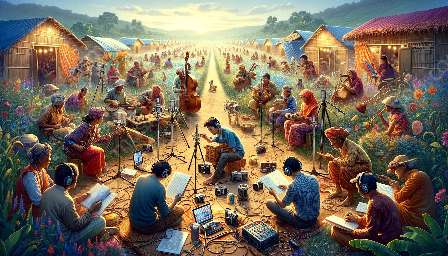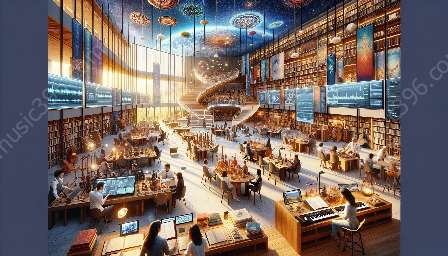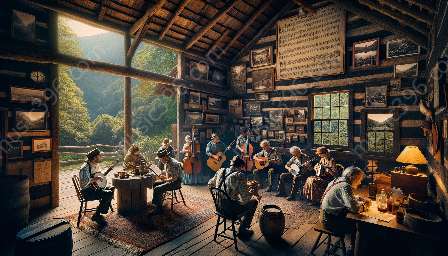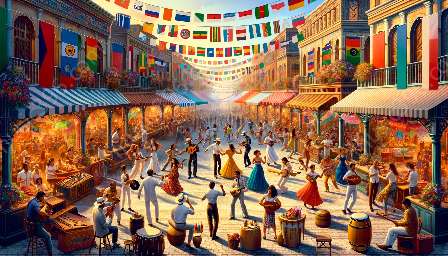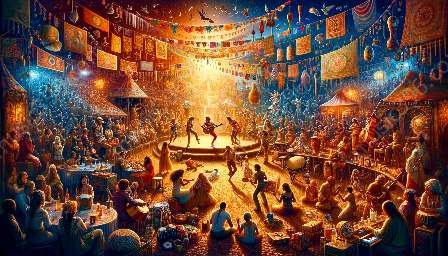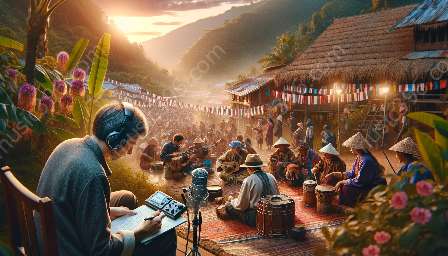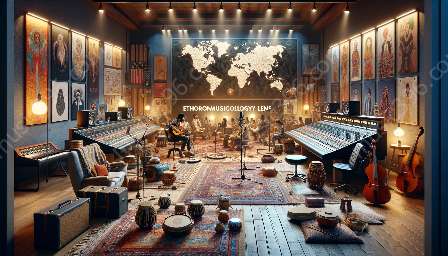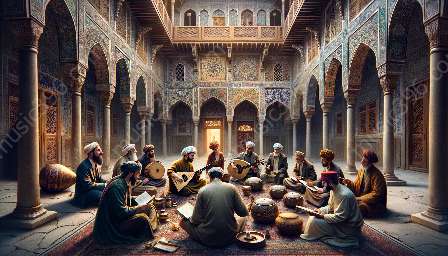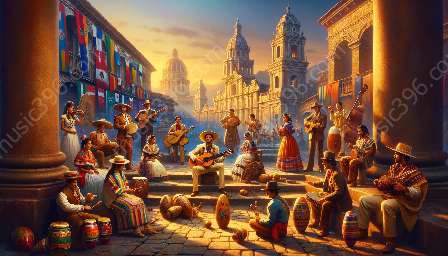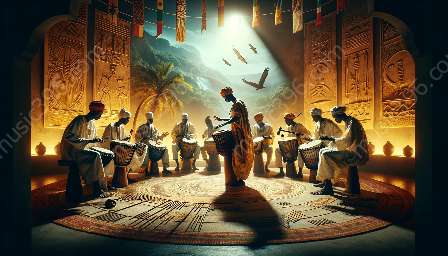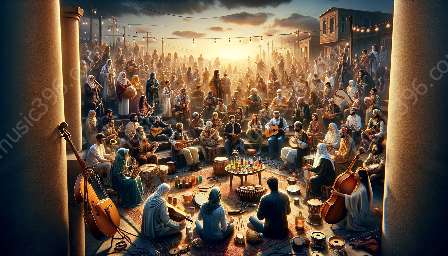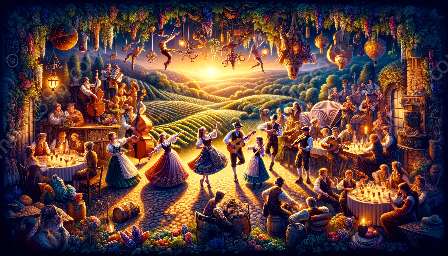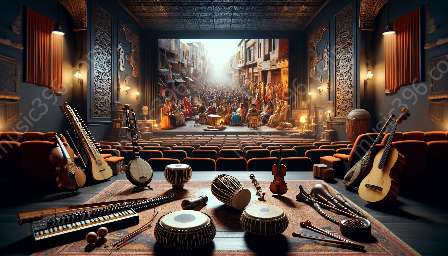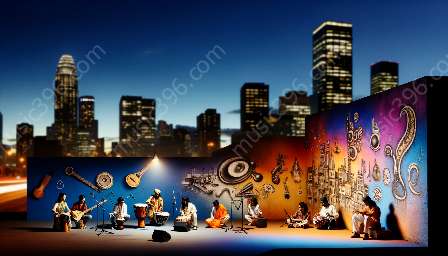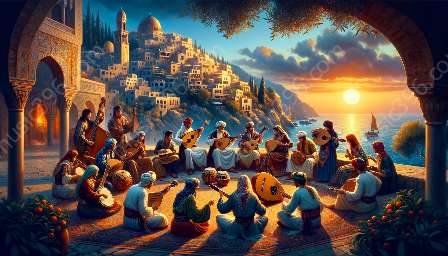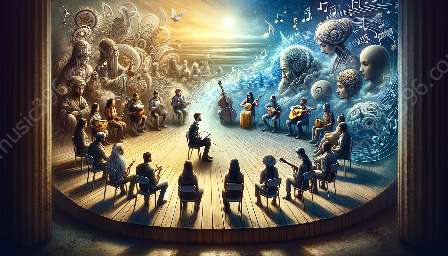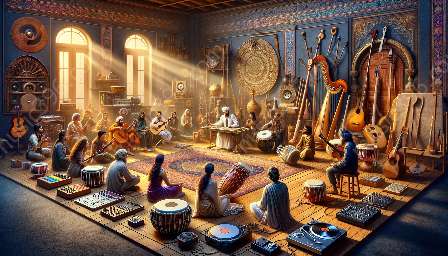Urban music cultures play a crucial role in fostering intergenerational continuity, as they serve as a foundation for understanding the dynamics of music within urban communities. Through the lens of ethnomusicology, we can explore the significance of urban music cultures in shaping and sustaining traditions across generations.
The Intersection of Ethnomusicology and Urban Music Cultures
Ethnomusicology, the study of music within its cultural context, provides a valuable framework for examining the role of urban music cultures in fostering intergenerational continuity. By delving into the diverse musical traditions of urban environments, ethnomusicologists can uncover the connections between music, community, and the transmission of cultural knowledge.
Cultural Transmission Through Music
Urban music cultures serve as a vehicle for transmitting cultural values, beliefs, and practices from one generation to the next. This transmission occurs through various channels, including oral traditions, performance practices, and community gatherings. The intergenerational continuity of urban music cultures is evident in the ways in which music becomes intertwined with everyday life, creating a sense of belonging and identity for individuals within urban communities.
Community Building and Identity
Within urban settings, music acts as a catalyst for community building and the formation of collective identity. From hip-hop to jazz, urban music genres contribute to the creation of distinct cultural identities that span across generations. The shared experiences and narratives embedded within urban music cultures create a sense of continuity and belonging for individuals, fostering a deeper connection to their cultural heritage.
Legacy and Innovation in Urban Music
Intergenerational continuity within urban music cultures also involves a dynamic interplay between legacy and innovation. While traditional musical practices are upheld and passed down through generations, urban music continually evolves, reflecting the changing social, political, and economic landscapes. This balance between preserving heritage and embracing innovation ensures that urban music remains relevant and meaningful to diverse communities.
Impact of Technology
Technological advancements have played a significant role in shaping the intergenerational continuity of urban music cultures. From the rise of digital platforms to the accessibility of recording and production tools, technology has transformed the way in which urban music is created, distributed, and consumed. This intersection of technology and music presents both challenges and opportunities for preserving and transmitting cultural knowledge across generations.
Challenges and Opportunities
While urban music cultures have the potential to foster intergenerational continuity, they also face various challenges in an ever-changing urban landscape. Economic disparities, gentrification, and access to resources can impact the sustainability of urban music traditions. However, through community engagement, education, and advocacy, opportunities arise for preserving and promoting urban music as a vital component of cultural heritage.
Education and Mentorship
Investing in music education and mentorship programs within urban communities is crucial for nurturing intergenerational continuity. By providing opportunities for young aspiring musicians to learn from experienced practitioners, urban music cultures can thrive and evolve while maintaining a strong connection to their roots. Mentorship fosters a sense of stewardship and responsibility among musicians, ensuring the preservation of cultural traditions for future generations.
Advocacy for Cultural Preservation
Advocacy efforts aimed at recognizing and safeguarding urban music cultures can further support intergenerational continuity. By elevating the visibility and importance of urban music within policy-making and cultural institutions, communities can actively preserve and celebrate the diversity of urban musical expressions. This advocacy empowers urban musicians and cultural bearers to continue their artistic practices and pass on their knowledge to the next generation.
Collaborative Approaches
Collaborative initiatives that bring together musicians, scholars, and community members offer a multifaceted approach to fostering intergenerational continuity within urban music cultures. By creating spaces for dialogue, creative exchange, and collaborative projects, urban communities can bridge generational divides and ensure that the rich tapestry of urban music traditions continues to flourish.
Conclusion
By recognizing the profound impact of urban music cultures in fostering intergenerational continuity, we acknowledge the resilience and resourcefulness of communities in sustaining their cultural heritage through music. Through the lens of ethnomusicology, we gain insight into the intricate connections between urban music, community dynamics, and the transmission of cultural knowledge across generations. As we navigate the complexities of urban life, the enduring rhythms and melodies of urban music serve as a testament to the enduring legacy and innovation that shape our collective musical heritage.


